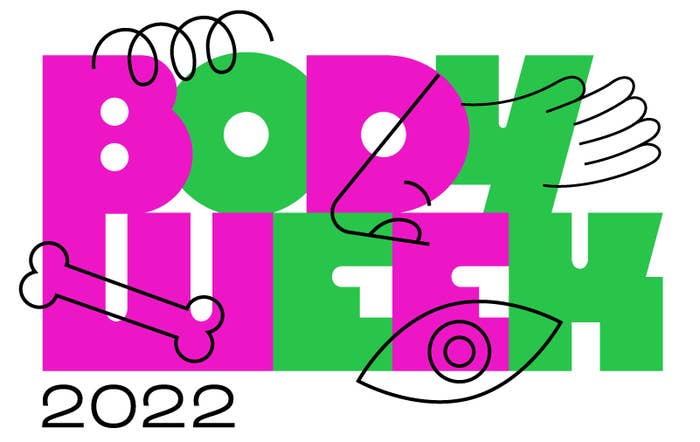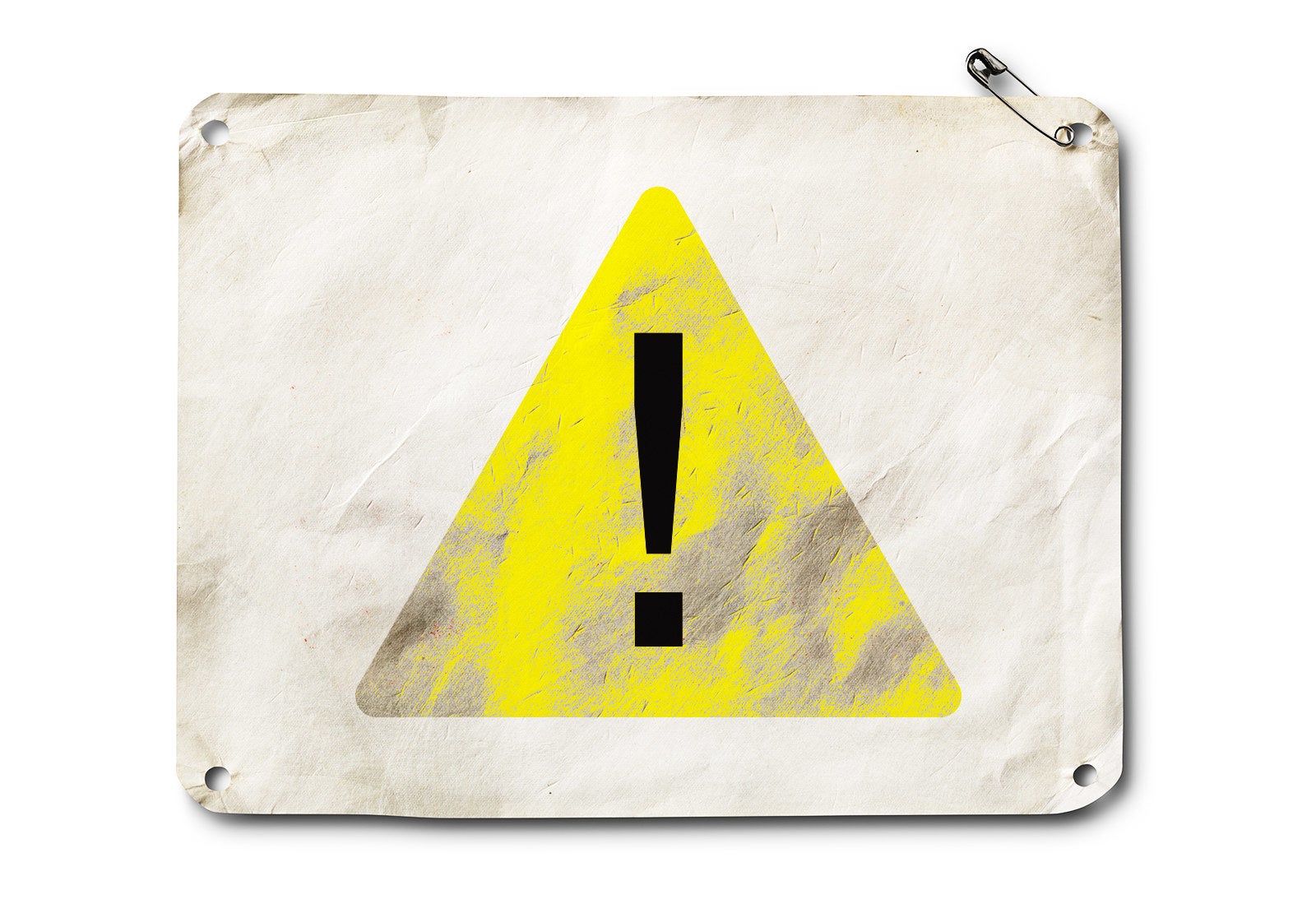“There, there, now,” my mom whispered, just like she used to when I was little, pushing my hair away from my wet, puffy face as she tried to rock me to sleep. I’d had insomnia for nearly three months. I was so tired that my eyes hurt, but my mind was dark and wild, thoughts pinging so fast in every direction it felt like they were physically bouncing off my skull. My heart rate was racing too, as it had been for days.
“What if I’m never the same?” I sobbed.
My brain felt like a tunnel, fuzzily manic. I struggled to focus at work and felt anxious. My thighs, face, abdomen, arms, and chest had inflated and felt like hard jelly. Inside, I was heavy and numb. I didn’t want to see anyone, do anything. Everything, even being happy, took so much effort. My body had gone haywire on almost every front.
These strange, frustrating symptoms and emotions had been intensifying for months, but I’d kept shrugging them off. I had so much to do. I’m a runner, and I had some pretty big races on the horizon so I kept going, despite poor sleep. As a very social person with a lot of energy, I kept my schedule packed with travel, reporting assignments, and weekend adventures, until one day I woke up and it was as if I had crawled into a hole, turned around, and couldn’t find my way out.
Finally I admitted to myself that something was really wrong. And I was right. Blood tests showed that among other imbalances, my cortisol levels were literally off the chart. That is one of the telltale signs that your body is warning you that it can’t take much more, Dr. Gerry Farris, a specialist who works with people who seriously burn themselves out, told me.
“The body is trying to protect itself so it shuts you down,” he said. And when we ignore that? “You start to sequentially harm other organs,” Farris said, potentially causing “cardiovascular damage, kidney damage, and you can injure the brain as well.”
How did I get here?
The hard answer is “me.” I had put my body through so much stress, over and over, without giving it adequate rest, love, or nutrition, for a long time. I’ve viewed and treated my body like a machine, militant in the way I command it to grind and perform. In life, I subscribe to a “do at all costs'' mentality. I seem to have been born with one speed: go. And I live for the hustle because, while a lot of it is my personality, society often defines success as how much you can do and how well you can do it. As a 32-year-old millennial, I felt like I had to be bionic to succeed. As a journalist, the more news I can break, the more likely I can keep this job and rise in my career. Plus, I genuinely love my work. I’m intrinsically pulled toward disaster zones, mass shooting sites, and racial justice protests, and I am not satisfied until I am burrowed deep in the intensity, so I can get to the root of the pain and problem and share the voices of those who are hurting. I get into this gear, and I prioritize stories over my own health, because they matter more to me than sleep, rest, or food. And during these high-pressure work events, I run, because the movement helps clear my mind and soul of what I’ve taken in.

For seven years, I’ve been running nonstop, racing ultramarathons that cover 50 miles, 68 miles, 102 miles, sometimes days straight in extreme conditions. It brings me so much joy and I am lucky enough to have a strong body that can handle the effort. Right before and then during the pandemic, I decided to really go for it, to take it more seriously. I threw myself into training, running 70-80 miles a week, often squeezing in 12-mile hill workouts on Tuesdays before driving to the office. And like many of us over these last two years, I needed a way to distract and escape, so I went after big things. In 2021, I set the fastest known time for a woman on a 68-mile trail traverse, was the third woman to finish a 100-mile mountain race from Utah to Idaho, and ran a marathon in three hours and three minutes.
However, I failed to comply with the most important rules of athleticism: respecting, listening to, and resting your body. I struggled to admit that my body deserved to be replenished after I ran it ragged.
Since I was 25, my body has taken quite a beating: way too little sleep, family and romantic breakups, an eating disorder, thousands of miles, as well as dangerous, intense work assignments, and the pandemic. Most of the time, it has repeatedly done what I've demanded, even while I have largely punished and deprived it of basic needs.
Deep down, I viewed rest as a weakness. I grew up watching my mom battle debilitating depression and anxiety. She was sensitive and couldn’t handle a lot of life at once. Sometimes she’d leave for days, without warning. She didn’t mean to hurt me and my brother, but we suffered because of it. At 25, my mom suddenly severed our relationship, and our estrangement lasted for six years. During that time, I leaned into my toughness. A part of me revolted against being soft, gentle, or unable to handle hard things, because I didn’t want to be like her. I began to take pride in being able to run on empty.
But I wasn’t really. By now, most of us have probably experienced some form of burnout, which often burrows into and impacts our bodies. For people like me who struggle to slow down, experts say that without proper recovery, the cumulative effects can build until your body comes to a sputtering halt. And I had finally overdone it. I’d overstressed and overtrained my body to the point where it stopped functioning properly. I burned and crashed.
During one running event a few months ago, I met a badass older woman and we got to talking. I told her about the strange things happening to my body, and she turned and looked at me and said, “That sounds like overtraining syndrome. I think you need a break.” I immediately began googling, and everything clicked. After consulting my coach and some specialists, I figured out that I did have some form of overreaching/overtraining syndrome (OTS). This is a common, serious, but murky condition when an athlete fails to recover properly and their immune and parasympathetic nervous systems, which help regulate stress, stop working properly. Although studies have found that nearly 60% of elite athletes and more than a third of non-elite runners experience some form of OTS, experts told me that it’s not widely recognized in the medical community, and it’s still very hard to diagnose, as the symptoms can vary from one person to another.
Most doctors, Farris told me, would have no clue what the syndrome is or how to treat it because it is so complex. There’s still no one test or biomarker that draws a clear line to OTS, but it plagues people of all kinds: BMX bikers, football players, weightlifters, cyclists, swimmers. According to Farris, people who aren’t athletes can also overstress the immune system and experience a similar reaction by overworking, for example. “Burnout is the same mechanism,” he said.
I checked both boxes. And learning about what has happened to the bodies of people like me has been terrifying and sobering.
“I’ve had at least 50 athletes reach out to me with stories similar to yours,” said David Nieman, the director of the Human Performance Laboratory at Appalachian State University, who’s been studying overtraining and athletes for nearly 40 years. “What they all have in common is one fundamental principle, which is [that] the accumulated stress load between training and life stresses exceeds the ability for the individual to handle it all.”

Nieman said his research shows that our immune system is “the weak link.” When I, for example, race 100-mile distances, my body and mind go into overdrive. Pushing for 8, 12, 24 hours at a time, he points out, “is a physiological stressor of high magnitude, which requires a huge immune response to restore.” When I don’t give myself enough downtime afterward, my immune system is unable to recover. It then starts pulling energy from other systems, like hormonal, cognitive, and metabolic functions, leading to “multisystem organ dysfunction.”
While the symptoms of OTS hit people differently, one throughline is overwhelming mental exhaustion, depression, and loss of self.
That's brutal: Your heart rate spikes doing easy things, like walking up the stairs. Your athletic performance plummets. You can’t sleep, but are exhausted all the time; you become moody and depressed. You lose your appetite, sex drive, and can get sick more easily. If you have a menstrual cycle, it stops, and hormone levels go all over the place. Dozens of elite athletes have quickly disappeared from ultrarunning when seemingly at the peak of their careers. People who once could run hard for 24 hours ended up damaging their systems so badly they could barely make it around the block before their heart rate rocketed and breathing became too labored. This past summer, Olympic swimmer Simone Manuel said that she failed to qualify for the 100-meter freestyle finals because OTS had made her a shell of herself. (A significant factor in her condition, she pointed out, was the mental and emotional drain of seeing a pandemic and police brutality rip simultaneously through the Black community.)
While the symptoms of OTS hit people differently, one throughline is the overwhelming mental exhaustion, depression, and loss of self. In Nieman’s work and online forums, people have shared how they seemed to shrink away from who they used to be, often describing it as “devastating.”
Róisín McGettigan, an Irish former Olympic runner, said OTS forced her out of the sport. Now a mom and mental health counselor who works with athletes and other high-achieving people, the 41-year-old described how she fell apart while trying to maintain an intensive training program from 2008 to 2010. One week, she would be clocking some of the best times of her life; the next, she felt like she “fell off a cliff.” Runs that used to be easy felt laborious; she put on weight, was deeply exhausted no matter what she did, and didn’t feel like herself.
“I was physically depressed,” she told me. “I screwed up my internal thermostat, and what I was normally able to tolerate, my body was rejecting.”
But like me, she pushed through anyway, because, for a professional athlete, she thought backing off would be a sign of weakness. After trying to come back for another season, she knew it was over. She wasn’t the same. And though she still runs, nearly a decade later, she doesn't "have the same engine I used to have,” she said.
“That's a scary thing, to see a high-functioning human reduced to this level, and then they can't recover despite everything, is terrible to see.”
Nieman said he’s watched the same thing happen again and again and again to athletes, including one of his best friends, an ultrarunner who “became like an old arthritic man” after getting sick and racing anyway. “He was a tremendous athlete,” Nieman said. “That's a scary thing, to see a high-functioning human reduced to this level, and then they can't recover despite everything, is terrible to see.”
But why do we get ourselves to this point? Both Farris and Nieman said that athletes (specifically ultrarunners) have an inexplicable desire to push themselves. We ignore pain and discomfort, persevering in order to achieve the end goal, no matter what else is going on in our lives.
“How do you start to tell people that you have to be aware that the body is [giving] you signals?” Farris asked. “Most people with OTS are so mentally tough they will fight through anything, and they get so far down the road that they’re in real trouble and can’t get back.”
Another factor, Nieman said, is “zeal,” especially in the US, where we push ourselves relentlessly to become the best. “I know a lot about the body. I pushed mine as hard as I could,” he told me. “There has to be a level of acceptance here in who we are. People push too much and have unrealistic expectations of what they can do.”
Their answers hit me hard. Still, I knew better. I’d ignored information and warnings from trainers, therapists, fellow runners, and my own body for years. When I was told I needed to slow down, rest, sleep, I refused to listen.
But it’s really hard to change the speed of your intrinsic engine. My father told me that I have always been this way. When I was 2, he said, I was already “everywhere.” When other toddlers were chilling during mommy-and-me time, I was scaling the furniture and “blowing past all the boys” to get to the jungle gym. I’d get on the monkey bars and “go back and forth over and over,” he recalled. “You never wanted to let go or stop.”
And when you’ve poured so much of your time and heart into a passion, it’s hard to see that you’re going too deep and pull back. And as an ultrarunner, although I am in tune with my body, I’m also used to ignoring its complaints at mile 45 or 80 of a race when it’s tired or hurting.
But now my body has commanded my attention, and I am trying my best to listen. This experience has forced me to finally examine myself. I have never been the best at self-care. I am learning that it takes strength to be still, to admit you cannot do everything all at once, and love yourself enough to heal from what your body has been through.
And when my wheels came off, I had to sit in the shit for a while before I could move forward. To get better, I had to learn how to unhustle. I canceled races and most of my plans, shelved this year’s goals, and retreated. I felt like my zest for life had completely evaporated. I stayed in most nights and spent a lot of time by myself.
It sounds obvious and easy, but it was like coming off a drug. My body is used to running 12 to 18 hours every week, and it’s how I see and catch up with most of my close friends. Running fuels me physically, socially, and spiritually. Losing that during a time when I was so depressed made the mental heaviness even more difficult.
But it made me be more honest with myself about why I felt the need to perform and achieve. A lot of that has to do with reframing what it means to be successful, reexamining this narrow way in which we measure self-worth. I also had to accept that I was living in a swollen, exhausted body that felt foreign and uncomfortable. I had to resist my urges to try to restrict it back into order, to not fall back into old self-destructive eating habits. Most of the time I succeeded; some days I did not. I cried a lot. I spiraled because I didn’t know how I could get back to who I was before. But I kept — and am still — trying. I wrote “temporary” on Post-it notes in capital letters and stuck them on my mirrors. That word has become my rock.
I have started working more closely with a therapist and nutritionist. I am lucky I can take on the cost, and I knew I had to prioritize it. I found myself reaching out to people I normally would not look to for help, like my mom, whom I spent my whole life trying not to be like and who’s now supporting me as I try to reprogram myself.
It’s been a hard, scary, and lonely process, but a necessary one. And it’s working. The heaviness that had become a mainstay in my brain is ebbing. I am feeling lighter, like I can be silly and laugh like I used to. I’m sleeping much better. I don’t wake up as often feeling empty, numb, and unmotivated. I realized how much I missed my friends, and being out in the world and part of it. And though I’m not quite ready to jump back into it yet, it feels good to have that desire.
I’m also rebuilding myself as a runner, one week at a time. So far, so good. My cortisol levels are back to normal, and my iron levels are the highest they’ve ever been. My hormones are closer to being balanced than they have in years. My skin is starting to feel like familiar territory again, and when I look in the mirror, I can recognize the eyes staring back. But I still have more work to do. I have to unwind a lot of deeply ingrained beliefs and habits. And I have to be patient (another thing I'm working on).
My greatest fear, when I felt so lost and desperate, hyperventilating in my mom’s arms, was about never being the same, not being able to return to the body and person I used to be. That thought was terrifying, but it came true. I’m not the same. My burnout has left some marks, and that’s good. They’re reminders that this body is a living thing. It hurts and needs just like everyone else’s, but it is mine. And it will carry me through, but I have to carry it, too. ●

